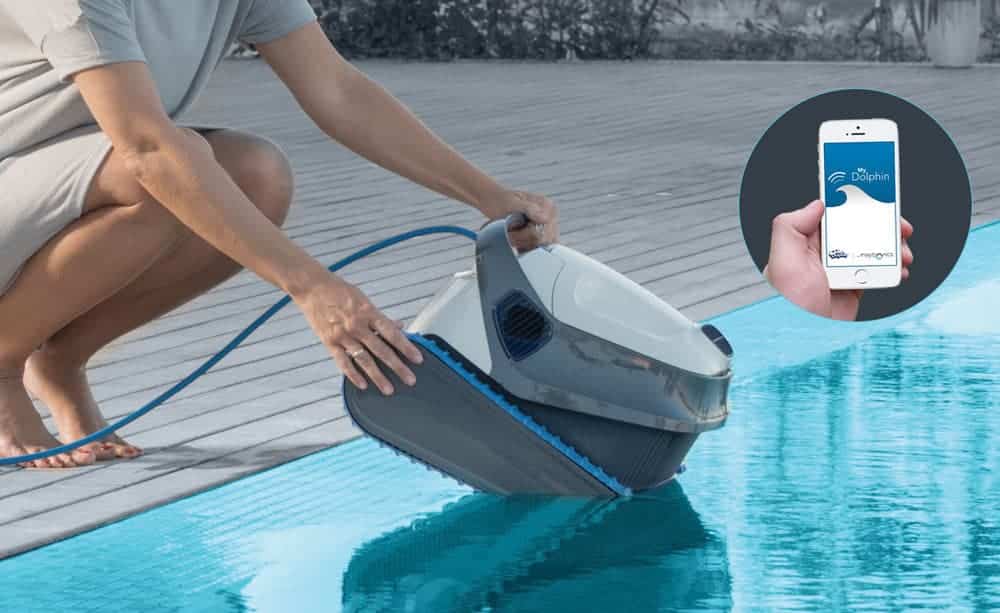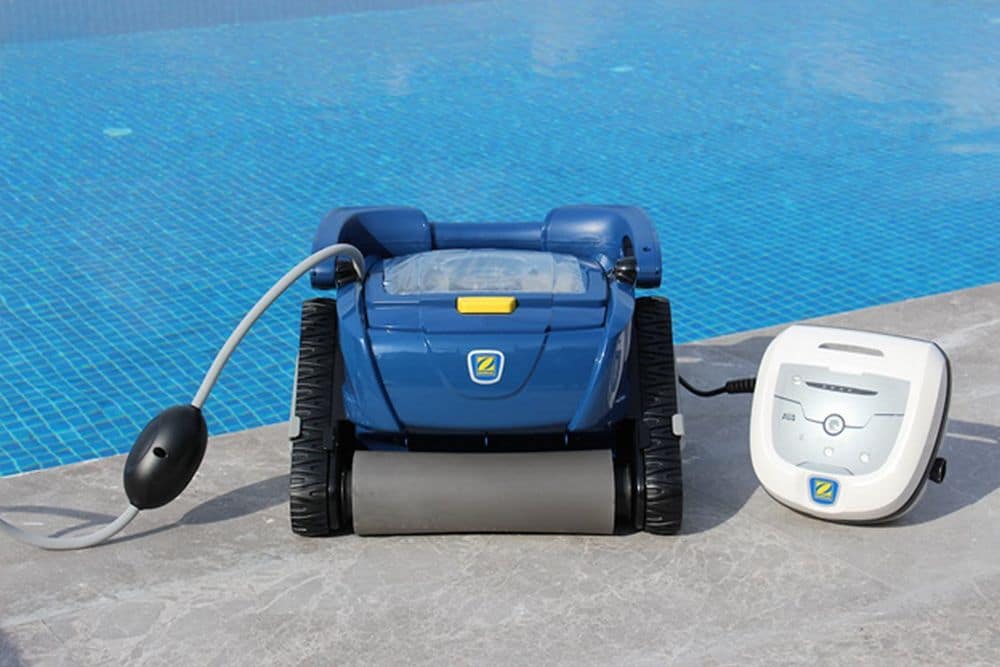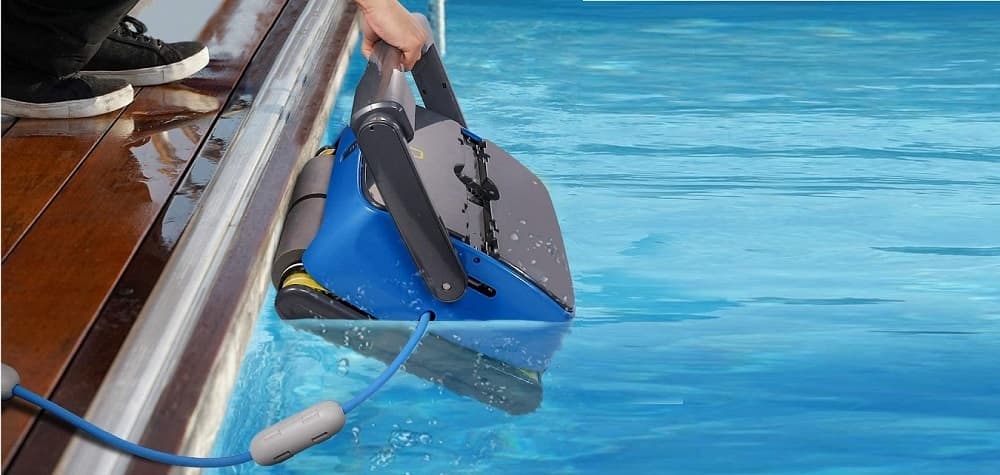
If you have a pool at home, you already know how painstaking it is to keep it clean. There’s just so much that goes into it! You can’t be risking your or your family’s health swimming in a dirty pool, now can you?
Well, you’ve got to take your pool cleaning seriously, and to accomplish that, you need a great pool cleaner, besides other tools.
A pool cleaner is going to make your job of cleaning the pool a lot easier. You’re going to be able to maintain a clean and pristine pool without putting in too much work and also stressing out about finding time to do it because pool cleaners will save a lot of your time.
So are you considering buying a new pool cleaner? These tips might help you get the best out of it, saving you time and energy, so you can spend all of that enjoying the pool!
Types of Pool Cleaners
Pool cleaners are investments, so you need to know everything before you spend your cash on one. The first thing you need to consider about buying them is what type of cleaner you want.
Below are some of the different types of pool cleaners available on the market; let’s take a look at them.
1. Robot Cleaners
Robot pool cleaners like the dolphin proteus dx4 are efficient and clean thoroughly, and the best part? They have their own filtration system! This means they don’t need your pool’s filtration system and its own disposal bag, which packs and bags the debris from the pool.
Robot cleaners have sensors to navigate the pool’s contours and water currents and clean effectively without missing any spots. They also conserve a lot of energy, saving you tons of money on electricity!
Pros:
● Efficiency and meticulous cleaning.
● Navigated cleaning.
● Energy efficient.
● Convenient and automated.
Cons:
● Expensive.
● Cords can be a hassle to manage and keep untangled.
2. Suction Cleaners
These types of cleaners attach to your pool’s suction line and move around the pool, using its filtration system to collect debris.
Pros:
● Affordable.
● Low maintenance and easy to use.
● Easy installation and set up.
Cons:
● Not energy efficient
● Not great for thorough cleaning with a lot of debris.
3. Pressure Cleaner
These cleaners use water pressure to move around the pool and pick up debris from the pool. They often need a separate booster pump in most cases. They come with an individual debris canister or disposal bag.
Pros:
● Efficient cleaning.
● Separate debris cleaning.
● Wide coverage area.
Cons:
● Need a separate booster pump.
● Can be difficult to install and set up.
● May need frequent maintenance or repairs.
4. Portable Cleaners
These are compact and handheld pool cleaners that do a great job of spot cleaning and cleaning small to medium-sized pools, also bathtubs and jacuzzis. They’re fantastic for quick cleaning and maintaining clarity in specific areas of the pool.
Pros:
● Portable and lightweight.
● Easy to use.
● Affordable.
Cons:
● Need a lot of effort.
● Don’t cover a lot of areas.
● Limited filtration.

If You’re Buying A Pool Cleaner, Consider These Tips
Now that you’ve decided on the type of pool cleaner you want from our list above, it’s time to explore some more tips before you splurge on a cleaner.
1. Pool Size and Type
Consider the size and shape of your pool; some cleaners are better for larger pools, while others are suited for smaller ones.
Also, the floor of your pool (concrete, vinyl, marble, fiberglass, etc.) can determine which cleaner is going to work best.
If you’ve renovated your pool recently, consider the changes you’ve made and find a cleaner according to that.
2. Cleaning Power and Navigation Technology
You want a cleaner that offers effective cleaning, including scrubbing walls, floors, and steps. Some robotic cleaners come with advanced features like different programmable cleaning cycles and remote control.
Navigation technology is featured on robotic pool cleaners, and if you’re buying one of those, gauge its navigation capabilities in terms of deep cleaning and consistency in cleaning without missing any areas.
3. Energy Efficiency
If you’re considering a robotic cleaner, check its energy consumption. Those that are energy efficient will save money on electricity bills in the long run.
4. Filtration System
Robotic cleaners have their own built-in filtration system that can capture fine and small debris, while other types rely on your pool’s filtration system. Consider the type and quality of the filtration system each cleaner has.
5. Ease of Use and Maintenance
You definitely want a pool cleaner that is easy to use, operate, and clean. Some robotic cleaners are self-cleaning filters, making maintenance easy.
6. Cord Length
If you’re getting a robotic cleaner, make sure that the cord is long enough to cover the entire pool area without getting all tangled and jammed.
7. Durability
Before buying the pool cleaner, make sure you check customer reviews and ratings to find out how durable the one you’ll buy is. Reach out to consumers who have bought the product and ask what their reviews and recommendations are about the cleaner.
8. Price
Before you buy the pool cleaner, you’re obviously going to determine the budget. While it is tempting to get the cheapest one, remember it is an investment, so a little pricier and higher-quality cleaner will lead to better performance and durability, giving you better value for your money.
9. Brand Reputation
Stick to well-known and reputable brands that have a history of producing reliable and high-quality pool-cleaning equipment. So you want to buy from trusted brands to give you your money’s worth.
10. Installation Features
Consider how easy the pool cleaner you’ve been eyeing will be to install and operate. That’s why go through reviews and tutorials; some types may need professional installation, while others you can do yourself!

Things to Remember About Pool Cleaners
Pool cleaners are a pretty major investment, so you want to do your research before purchasing one. Here are some things to keep in mind when buying pool cleaners,
● See which type will suit your pool best.
● Make a note of your pool size when you’re buying pool cleaners to see which fits the size of your pool best.
● Regular maintenance of your pool is important to keep it clean and its swimmers healthy.
● Even with pool cleaners, maintaining proper chemical levels in your pool is crucial for overall water quality.
● Properly store your pool cleaner when you’re not using it to prevent any damage and make it last longer because the last thing you’d want is spending more money on maintenance and repairs on your already expensive pool cleaner.
● Some cleaners come with additional accessories like remote controls and smartphone configurations and make use of these features according to your pool’s cleaning needs.
● Clean your pool cleaner properly after it has cleaned your pool. Don’t let dirt or debris accumulate, affecting the device’s longevity.
● For more complex and advanced pool cleaners, consider professional servicing every once in a while to ensure consistent performance and efficiency.
● Don’t leave your pool cleaner running if you or anyone else is going to swim in the pool and always take it out after it’s done cleaning. Make sure your pets or kids don’t trip on the cords, so always keep it away when they’re around the pool area.
● If you’re going to buy a pool cleaner and have pool equipment stores near you, consider going to the store and buying the device upfront. That allows you to trust your purchase, and you can see the product in action before spending your money on it.
Conclusion
So we’ve reached the end of our pool-cleaning tips guide! We hope you found it useful and consider some of these tips before spending your dime on a pool cleaner.
Remember, a good pool cleaner won’t be cheap, so consider going all out on researching and investigating before buying one. Read customer reviews, watch tutorials online, and speak to experts to know exactly what you want.
FAQs
1. What Chemicals Do You Need To Clean A Pool With?
Ans: Chlorine and bromine are the two most commonly used chemicals that are used to clean pools.
2. How To Get Green Algae Out of Your Pool?
Ans: To get green algae out of your pool, use chlorine shock to kill the algae and then filter it out later on.
If you want to make sure your pool has no trace of the algae, you can brush and scrub the walls to get any remaining spores out.
3. How Can I Raise The pH Level of My Pool Water?
Ans: If you want to raise the pH level of your pool water, you can add baking soda and soda ash. You want to keep the levels between 7.4-7.6. Do your own research as to how to safely raise pH without posing any risks to the pool and its swimmers.
4. What Is An Ideal Temperature For A Pool?
Ans: Temperatures ranging anywhere between 78 to 86 degrees Fahrenheit or 25-28 degrees Celsius is the perfect temperature for a pool.









